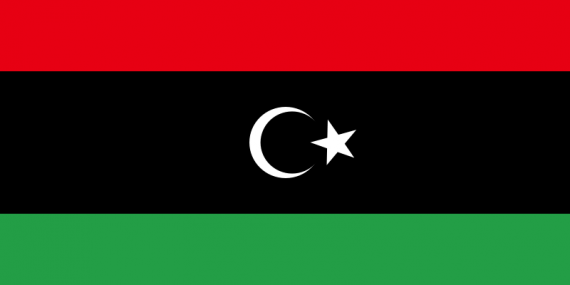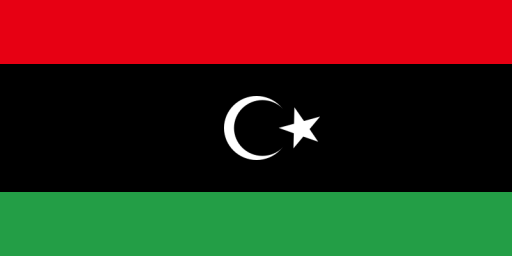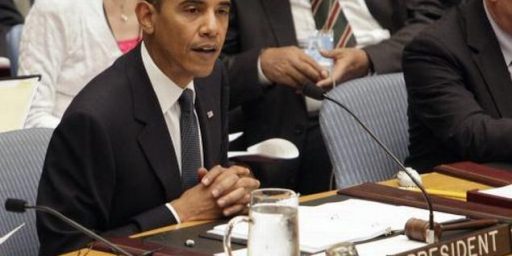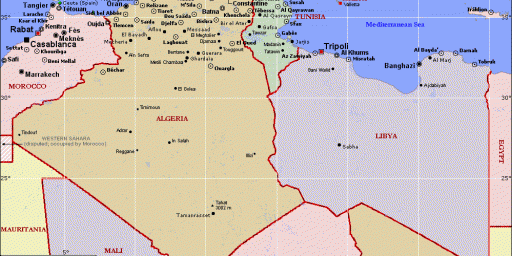U.S. Reportedly Abandoning Any Plan For No-Fly Zone Over Libya
While the U.N. Security Council engages in a largely fruitless debate over what action to take in Libya, the Obama Administration is sending further signals that establishing a no-fly zone is pretty much off the table at this point:
While administration officials said the United States would not obstruct efforts by other countries to build support for a no-flight zone in the United Nations, President Obama met with his National Security Council on Tuesday to consider a variety of other options to respond to the deteriorating situation.
Among those options are jamming Libyan government radio signals and financing the rebel forces with $32 billion in Libyan government and Qaddafi family funds frozen by the United States. That money could be used either for weapons or relief. The meeting broke without a decision, the official said.
“This is another indication of the constant exploration of different options that we have to increase the pressure on the Qaddafi regime as we go forward,” the White House press secretary, Jay Carney, said Tuesday.
But in fact, the administration’s options have narrowed with the dwindling viability of a no-flight zone. The White House is considering more aggressive airstrikes, which would make targets of Colonel Qaddafi’s tanks and heavy artillery — an option sometimes referred to as a “no-drive zone.” The United States or its allies could also send military personnel to advise and train the rebels, an official said.
But given the lack of consensus behind a no-flight zone, these options are viewed as even less likely. It is also not clear that airstrikes would be more effective than a no-flight zone.
“Most of these weapons are no longer stored in ammunition depots; most of them have been dispersed into towns and cities,” said James M. Lindsay, the director of studies at the Council on Foreign Relations. Singling out these weapons individually, he said, greatly increases the chances of civilian casualties.
Moreover, senior officials, notably the national security adviser, Thomas E. Donilon, have made it clear that the United States does not view Libya as a vital strategic interest.
If we’re truly at the point where a no-fly zone isn’t an option anymore, as for the reasons James Joyner noted yesterday it seems pretty clear that we’re very close to that point, then it’s probably time for the Administration to make that clear, and to make clear to the rebels that they are indeed on their own.
H/T: Frum Forum







In my view, letting the rebels know we’re not going to set-up a no-fly zone would be nice, but it would be outweighed by the negatives of letting Qaddafi know that we’re not going to set up a no-fly zone. I don’t see the value in taking it off the table. Why tell Qaddafi that he has nothing to lose?
Turkey and Germany are opposed in NATO. That’s all it takes to stop NATO. No way we do this without the one Muslim member supporting it.
I felt from the start that our only play was — if a firing solution happened to occur — to take a decapitation shot. And even that was iffy because Gaddafi may need killing, but we have no idea who this opposition is. This sure looks and feels tribe-on-tribe and without a clearly superior opposition why would we take sides?
People advocating a no-fly zone don’t understand what is involved.
In order to do it, Obama would need to take a position and make a decision. I hope everyone can see how impossible it would be to get this done.
I had almost forgotten what it was like to let a country actually take care of itself without us micromanaging every aspect of it’s internal affairs.
it’s actually kind of…nice. Maybe we should try it more often.